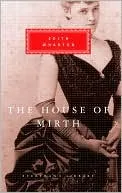Visit msnbc.com for Breaking News, World News, and News about the Economy
It occurs to me, watching this exchange between Rachel Maddow and Frank Rich, that a lot of you whippersnappers are too young to remember what it was like before the Kennedy assassination. Rich himself alerted me to this in the clip, when he talks about how he sort of recalls the political climate in which the assassination took place.
Well, I remember it clearly, and a lot of the right-wing gabble of today reminds me of it -- chillingly. Kennedy's death turned him into a hero, and neutralized all of the vitriol. But when he was killed in Dallas, I wasn't surprised, because I knew what Dallas -- and the South in which I grew up -- was like in the early '60s. Visceral hatred of Kennedy was widespread -- irrational hatred, to be sure, given that Kennedy was a moderate, even center-right politician. In fact, the things that are said in public about Obama are mild, compared to some of the things that were said about Kennedy.
But there's another element that has changed: In the early '60s, the Republican party had a substantial and lively complement of moderates like Jacob Javits and Nelson Rockefeller. And the Democrats included fire-breathing right-wingers like James Eastland, Orval Faubus and George Wallace. In short, the political parties were less polarized than they are now. All of that would change after Kennedy's death and especially after the passage of the landmark civil rights legislation -- with some support from Republicans. In other words, bipartisanship was possible then. I don't think it is now.
So I'm scared, deeply scared by the tumult and shouting. And by the fact that no one in the Republican party has the courage and the conscience to try to put a damper on it. Those who do, after all, get mocked and smeared by talk radio and Fox News. These times remind me of the times of my youth. And that's not a good thing.


